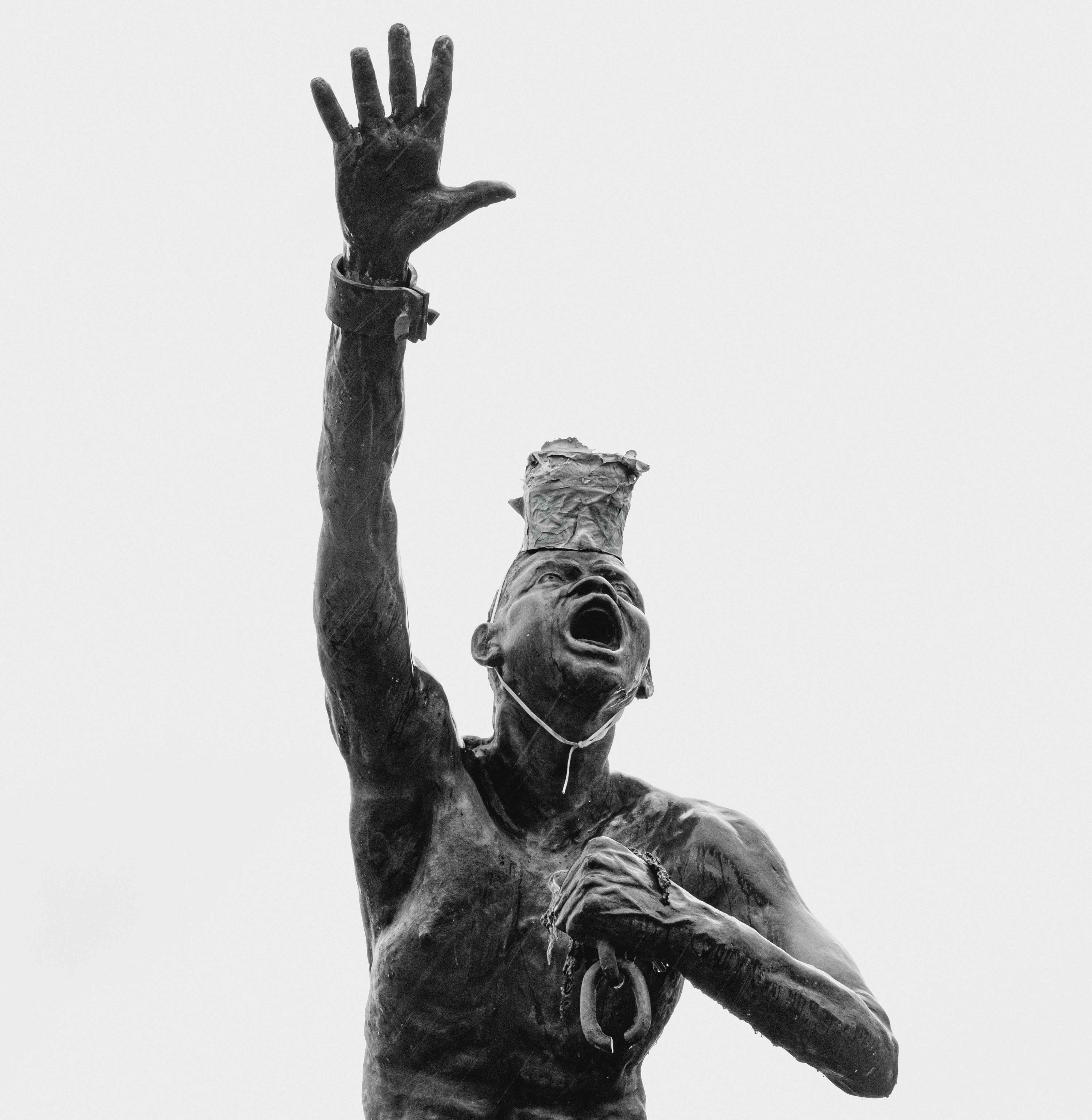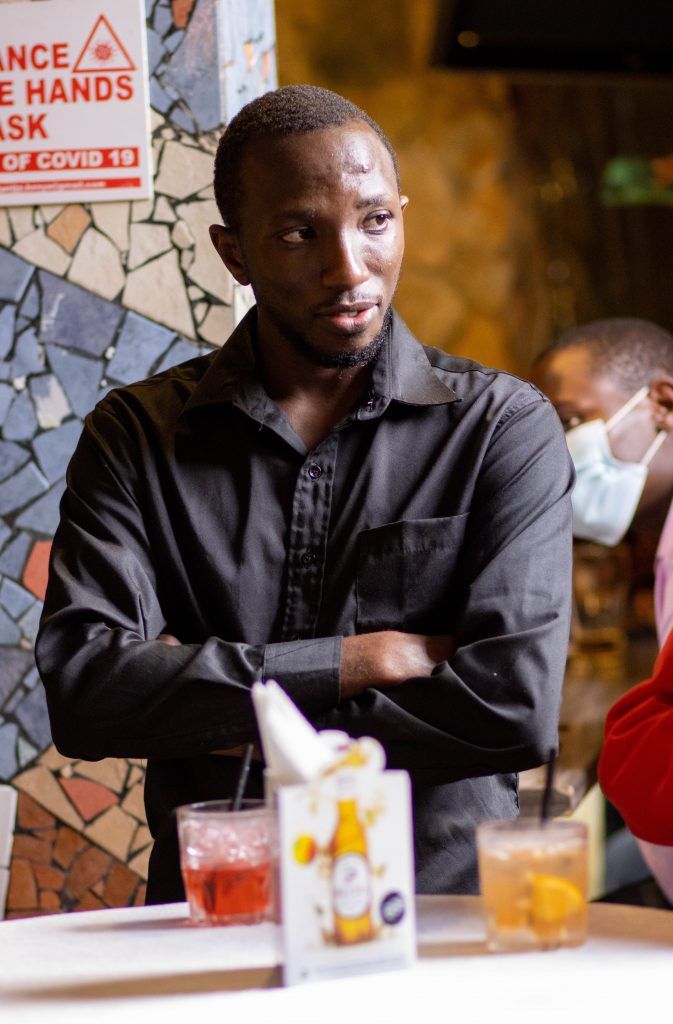If you walk up to a random Kenyan and ask them how Kenya gained independence, they will tell you, “We fought for it”. They may tell you about the Mau Mau. Or about the likes of Jomo Kenyatta, Kungu Karumba, Achieng Oneko, Tom Mboya, Oginga Odinga … Those a bit more woke may tell you about Pio Gama Pinto. If they want to go further back in time, they may tell you about Waiyaki wa Hinga, Mekatilili wa Menza, Koitalel Arap Samoei, the Chetambe War in Bukusuland and so forth.

The next question you ask them is: “Why did we fight?” To which they will answer, “For freedom.” Uhuru. But what is freedom? Why was it worth dying for? Because to a young person in the twenty-first century, freedom might be a very abstract concept they can’t relate to. An idea they hear in movies and read in poems. What is freedom? Or rather, what did freedom represent for our forefathers?
To answer this question, let’s start by examining an early encounter between our people and the colonisers. We are told that when Captain Frederick Lugard first arrived in Dagoretti in 1890, he encountered a prosperous Waiyaki wa Hinga, who was the leader of the area. Waiyaki cautioned Lugard against daring to settle in the area, so Lugard made a treaty with Waiyaki on behalf of the Imperial British East African Company; and was given some land where he constructed a fort.
A month after his arrival, Frederick Lugard left Kikuyuland for Uganda. Unfortunately, the porters and askaris he left to man the fort started to act terribly towards the inhabitants of the area. They invaded the local farms. They looted food. They raped women. In response, an enraged Waiyaki wa Hinga sent warriors to raid the IBEA garrison and raze it to the ground. This was the beginning of the trouble between the British and the people of the land.
Analysing the story of Waiyaki, it becomes clear that during that early period, what moved the people to fight was not even the idea of freedom, for they were already free, but the disrespect and antagonism of the British and their representatives. But things would go from bad to worse in the years that followed. In 1895, the country today known as Kenya officially became a British protectorate and, in 1920, a British colony.
After World War I, in 1919, the British government needed to take care of its soldiers who had fought in the war. After a war, there is a period known as reconstruction. The war-battered economy of the Island of Britain would not have accommodated an influx of soldiers returning from all the theatres of operation. Fortunately, Britain was then in control of an empire that stretched across the earth. The government organised soldier settlement schemes in a couple of its colonies, which included Kenya.
The two communities who suffered most from Kenya’s soldier settlement scheme were the Kikuyu and the Nandi, as their land was taken and renamed “White Highlands”. This was due to the official policy of the government to reserve certain agricultural lands in the country for European settlers.
After the soldiers settled in the White Highlands, they needed manpower and resources to farm the land. The government’s kneejerk reaction was to raise hut taxes, which would force Africans to seek employment to raise the money. Chiefs were also empowered to use force to make Africans work for the settlers as well as for the government. Many men had run off to the towns to avoid the hut taxes. Many others had gone to war and never returned. As a result, many women and their children were forced to work on the plantations at lower wages. The women were also used by the government to dig trenches and build roads. It was a dehumanising work environment for these women, and many were raped and impregnated in the process.
It was at this time that Harry Thuku emerged as a champion of the oppressed Africans. Harry Thuku toured the country, from Central Kenya to Ukambani and Nyanza, observing the inhumane conditions Africans were subjected to by the occupiers of their land. He attracted large crowds, which alarmed the government, and he was arrested on March 14, 1922.
The day after his arrest, over 7000 supporters thronged Central Police Station to demand his release. That may have been the first maandamano in Nairobi. This went on until the next day, March 16, when a bloody massacre resulted as police and white settlers staying at the Norfolk Hotel pursued the crowd, shooting at them indiscriminately. The official government figures say 21 people were killed that day, but unofficial sources claim the number was close to 200. Thuku was exiled to Kismayu after this.
Like Waiyaki before him, Harry Thuku was not fighting because of a belief that white people were evil. He was fighting because of the dehumanisation of his people at the hands of the government and the settlers. At this juncture, I don’t think freedom or independence was even a factor in African agitation. Agitators like Harry Thuku were simply asking for Kenyans to be treated with the dignity they deserved as human beings.
When we say Kenyans fought for freedom, we need to understand what freedom meant to them. Was freedom the satisfaction that would come from knowing that your country is run by people of your colour? In that case, if the colonial government had treated the Africans with respect, if they had not dehumanised them, if they had not forced them to work for low wages, if they had not displaced Africans from their lands, if they had not condoned the rape and brutalising of Africans; would the people have staged an uprising (Mau Mau)?
On the other hand, how would they have succeeded in subjugating the Africans, taking their lands and enforcing their culture on them if not through violence? Is it possible to colonise a people without dehumanising them and taking away their right to choose what kind of lives they want for themselves?
Once we understand that it was all about fighting for dignity, we begin to understand the meaning of freedom and why it was so precious. We understand why people would prefer to die than live as sub-humans lorded over by brutal foreigners. Why Dedan Kimathi famously said, “It is better to die on my feet than live on my knees for fear of colonial rule.”
Also read: Humanity Is Our Right, and the Concept of Humanism Should Be Encoded in All Institutions





